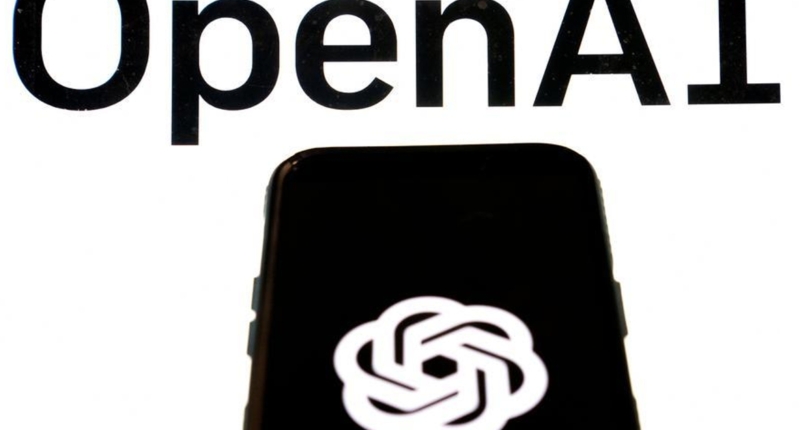GPT-4, the latest innovation from OpenAI, has the potential to bring about a paradigm shift that could transform our world more than electricity or the internet ever did. However, the rise of AGI raises concerns over the threat to human jobs and creative authenticity. The technology also puts a question mark over who can be trusted to make AI unbiased, accurate, and adaptable to different countries and cultures. OpenAI says it plans to build AGI gradually with the aim of benefiting all of humanity, but the software has safety flaws. Meanwhile, Sharon Zhou warns that the international order itself could be at stake, given the immense pressure between the US and China, with the artificial intelligence race invoking the Cold War era.
The Rise of AGI: How AI Could Disrupt the World More Than Electricity or the Internet
OpenAI, the company responsible for creating the generative software that produces essays, poems, and computing code on command, has just launched a new and more advanced version of their technology – GPT-4. This breakthrough brings us closer to the realization of artificial general intelligence (AGI), which could bring about a paradigm shift that’s “orders of magnitude” greater than any technological advancements we’ve seen before.
AGI refers to artificial intelligence with human cognitive abilities, in contrast to more narrow AI, such as the headline-grabbing ChatGPT. With the rise of AGI, people could be freed from menial tasks and usher in a new era of creativity. However, this shift could also threaten jobs and create insurmountable social issues, according to experts.
Siqi Chen, the CEO of San Francisco startup Runway, notes that previous technological advancements from electricity to the internet ignited powerful social change, but with AGI, we’re creating intelligence itself and increasing its amount in the universe. This makes the potential for change “orders of magnitude greater than every other technological change we’ve ever had in history.”
The release of ChatGPT last year brought us closer to the realization of AGI. OpenAI has now announced that GPT-4 will not only be able to process text but also images, and produce more complex content such as legal complaints or video games. It “exhibits human-level performance” on some benchmarks, the company said.
The success of OpenAI, backed by Microsoft, has triggered an arms race of sorts in Silicon Valley as tech giants seek to push their generative AI tools to the next level – although they remain wary of chatbots going off the rails. AI-infused digital assistants from Microsoft and Google can already summarize meetings, draft emails, create websites, and craft ad campaigns, giving us a glimpse of what AGI will be capable of in the future.
Jared Spataro, Microsoft’s corporate vice president, believes that artificial intelligence can help “rediscover the soul of work” by freeing us from “the drudgery.” Artificial intelligence can also cut costs, some suggest.
However, such an exciting and potentially frightening paradigm shift is a “double-edged sword,” Chen warns. Although AGI could be used to tackle climate change, it is also a tool that we want to be as “steerable as possible.” It remains to be seen how society will adapt to the disruption and changes that AGI will bring, but one thing is clear: the rise of AGI could transform our world more than electricity or the internet ever did.
GPT-4: How it could threaten jobs and put the international order at stake
GPT-4, the latest breakthrough from OpenAI, promises to usher in a new era of artificial intelligence with human-like cognitive abilities. British landscape architect Joe Perkins tweeted that he used GPT-4 for a coding project that would have cost him £5,000 ($6,000) and taken two weeks if done by a “very good” developer. However, the software delivered the same results in just three hours and for only $0.11. While this is impressive, the rise of AGI raises concerns over the threat to human jobs.
Entrepreneur Chen warns that the technology could one day build a startup like his – or an even better version, which could lead to people losing their jobs. He is counting on solutions to emerge to address this issue. Meanwhile, ubiquitous artificial intelligence puts creative authenticity at risk as songs, images, art, and more are created by software instead of humans. This begs the question of whether humans will shun education and rely on software to do the thinking for them.
AGI also raises concerns over who can be trusted to make the technology unbiased, accurate, and adaptable to different countries and cultures. The rise of AGI is “probably coming at us faster than we can process,” according to Sharon Zhou, co-founder of a generative AI company. She warns that the international order itself could be at stake, given the immense pressure between the US and China, with the artificial intelligence race invoking the Cold War era.
OpenAI says it plans to build AGI gradually with the aim of benefiting all of humanity. However, the company has conceded that the software has safety flaws. Safety is a “process,” says OpenAI chief scientist Ilya Sutskever, adding that it would be “highly desirable” for companies to “come up with some kind of process that allows for slower releases of models with these completely unprecedented capabilities.”
For now, slowing down is not part of the ethos, according to Zhou. The power is concentrated around those who can build this stuff. They make the decisions around this and are inclined to move fast. The fear is that if one country figures out AGI faster, they could dominate, putting the international order at stake.
Don’t miss interesting posts on Famousbio









